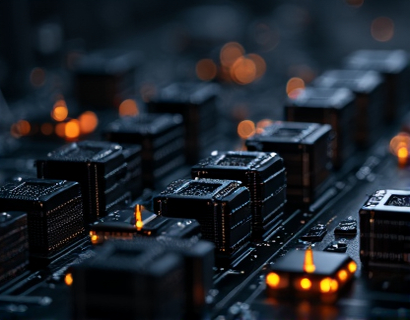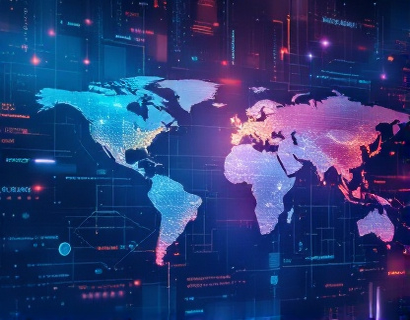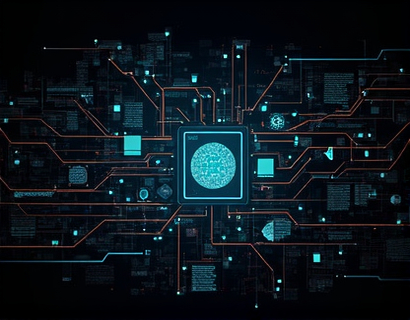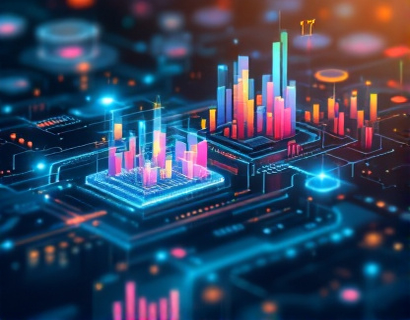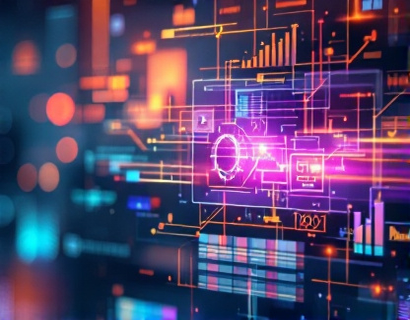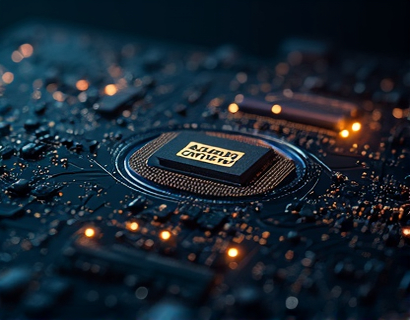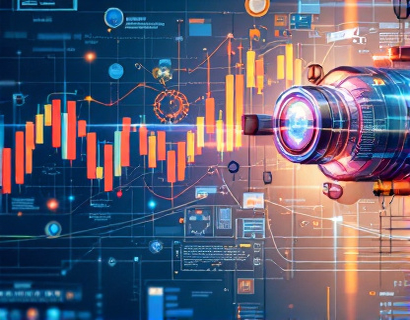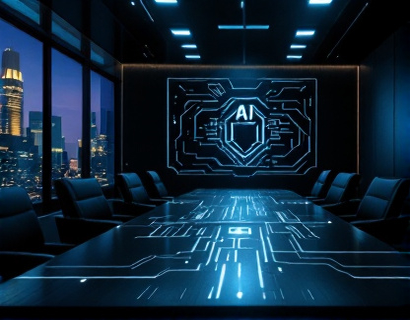Unlocking Digital Transformation: Harnessing Crypto and AI for Next-Gen Solutions
In the rapidly evolving landscape of technology, digital transformation has become a pivotal strategy for businesses and organizations aiming to stay competitive and innovative. At the forefront of this transformation are two revolutionary technologies: cryptocurrency and artificial intelligence (AI). This article delves into the synergy between these two domains, exploring how their convergence is giving rise to next-generation applications that redefine user experiences and drive significant value.
The Intersection of Cryptocurrency and AI
The integration of cryptocurrency and AI represents a confluence of decentralization, security, and intelligent automation. Cryptocurrency, with its blockchain foundation, offers a decentralized and transparent way to conduct transactions, while AI brings the power of machine learning and data analysis to optimize and automate processes. Together, they create a powerful toolkit for developing innovative solutions that were previously unimaginable.
Enhanced Security through Blockchain and AI
One of the most significant benefits of combining cryptocurrency and AI is the enhancement of security measures. Blockchain technology ensures that data is immutable and tamper-proof, while AI can detect and respond to potential threats in real-time. For instance, AI-driven algorithms can monitor blockchain networks for unusual patterns or anomalies, quickly identifying and mitigating risks such as fraud or cyberattacks. This synergy not only safeguards sensitive information but also builds trust among users, a critical factor in the adoption of new technologies.
Smart Contracts and AI Automation
Smart contracts, self-executing contracts with the terms directly written into code, are a cornerstone of blockchain technology. When paired with AI, these contracts can be programmed to execute complex tasks based on predefined conditions and real-time data analysis. For example, in supply chain management, AI can predict demand and optimize inventory levels, while smart contracts automatically trigger payments or adjustments based on these predictions. This seamless integration reduces manual intervention, minimizes errors, and increases efficiency.
Next-Gen User Experiences through Personalization
The fusion of cryptocurrency and AI is also revolutionizing user experiences through advanced personalization. AI algorithms can analyze vast amounts of user data to create highly tailored experiences, from personalized recommendations to customized interfaces. In the context of cryptocurrency, this means that users can enjoy more intuitive and user-friendly wallet applications, where AI-driven insights help manage assets more effectively. Moreover, decentralized finance (DeFi) platforms can leverage AI to offer personalized financial services, such as customized lending terms or investment strategies, all while maintaining the transparency and security of blockchain.
Decentralized Applications (DApps) and AI Integration
Decentralized applications, or DApps, are a prime example of how cryptocurrency and AI can come together to create transformative user experiences. DApps operate on blockchain networks, providing decentralized alternatives to traditional centralized applications. By integrating AI, these DApps can offer intelligent features such as predictive analytics, natural language processing, and automated decision-making. For instance, a decentralized gaming platform can use AI to generate dynamic game content, adapt difficulty levels based on player performance, and even create unique in-game assets that are securely stored and traded using cryptocurrency.
Innovative Business Models through Crypto and AI
The combination of cryptocurrency and AI is not only enhancing user experiences but also giving birth to new business models. One such model is the tokenized economy, where tokens represent assets or utility within a decentralized ecosystem. AI can optimize the distribution and valuation of these tokens based on market demand, user behavior, and other factors. This creates a more dynamic and responsive economic system, where value is continuously adjusted and optimized. Additionally, AI-driven market analysis can help businesses identify new opportunities and trends, enabling them to adapt their strategies and stay ahead of the competition.
Tokenized Identity and Privacy
Another innovative application is the tokenization of digital identities. By using blockchain to store and manage identity data, individuals gain greater control over their personal information. AI can enhance this process by ensuring the accuracy and security of identity verification, reducing the risk of fraud and enhancing privacy. This is particularly relevant in an era where data breaches and identity theft are increasingly common. Users can securely share their identity tokens with service providers, who can verify credentials using AI-powered systems, all while maintaining the integrity and confidentiality of the data.
Challenges and Considerations
While the potential of combining cryptocurrency and AI is vast, there are several challenges and considerations that must be addressed. Regulatory uncertainty remains a significant hurdle, as governments worldwide are still grappling with how to regulate these emerging technologies. Businesses and developers must navigate a complex legal landscape, ensuring compliance while innovating. Additionally, the technical complexity of integrating blockchain and AI requires a skilled workforce, which can be a barrier for some organizations. Education and training programs are essential to bridge this gap and foster a deeper understanding of these technologies.
Ethical Considerations
Ethics play a crucial role in the development and deployment of crypto and AI solutions. Issues such as data privacy, algorithmic bias, and the environmental impact of blockchain mining must be carefully considered. Transparent and ethical practices not only build trust but also ensure the long-term sustainability of these technologies. For instance, using renewable energy sources for mining and implementing fair AI algorithms can mitigate some of the ethical concerns associated with these technologies.
Future Prospects and Opportunities
The future of digital transformation through the synergy of cryptocurrency and AI is bright, with numerous opportunities on the horizon. As technology continues to advance, we can expect to see more sophisticated applications that further blur the lines between the physical and digital worlds. The Internet of Things (IoT), augmented reality (AR), and virtual reality (VR) are areas where the combination of crypto and AI can create groundbreaking experiences. For example, AI-driven NFTs (non-fungible tokens) can enhance the ownership and scarcity of digital assets in virtual environments, while blockchain can ensure secure and transparent transactions.
Conclusion
The intersection of cryptocurrency and AI is a powerful force driving digital transformation. By leveraging the strengths of both technologies, we can develop next-generation applications that enhance security, personalize user experiences, and create innovative business models. As the technology matures and regulatory frameworks evolve, the potential for these synergistic solutions to reshape various industries is immense. For tech-savvy individuals, AI enthusiasts, digital marketers, and early adopters, staying informed and engaged with these developments is crucial for harnessing the full potential of this exciting frontier.







